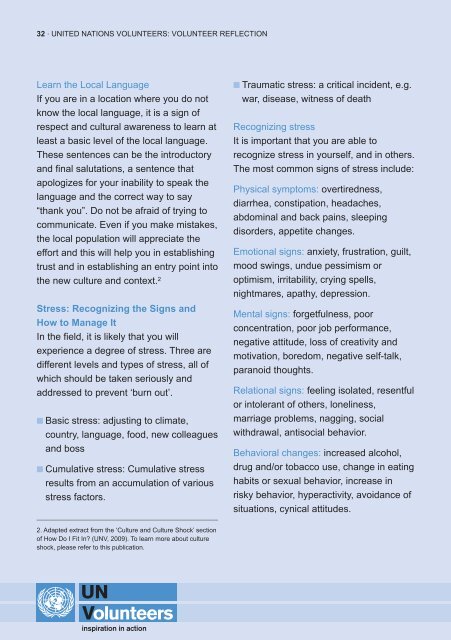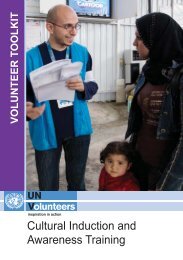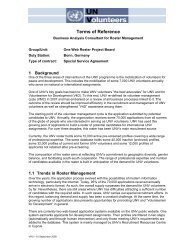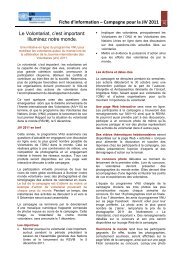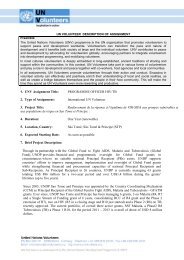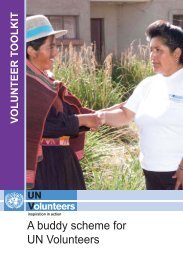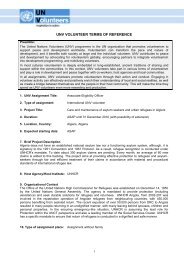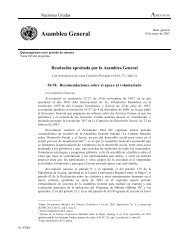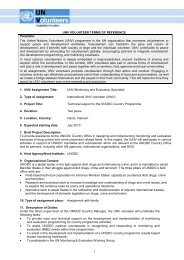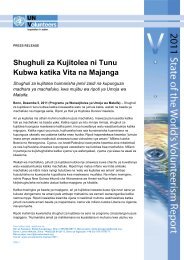Volunteer reflection - United Nations Volunteers
Volunteer reflection - United Nations Volunteers
Volunteer reflection - United Nations Volunteers
You also want an ePaper? Increase the reach of your titles
YUMPU automatically turns print PDFs into web optimized ePapers that Google loves.
32 . UNITED NATIONS VOLUNTEERS: VOLUNTEER REFLECTIONLearn the Local LanguageIf you are in a location where you do notknow the local language, it is a sign ofrespect and cultural awareness to learn atleast a basic level of the local language.These sentences can be the introductoryand final salutations, a sentence thatapologizes for your inability to speak thelanguage and the correct way to say“thank you”. Do not be afraid of trying tocommunicate. Even if you make mistakes,the local population will appreciate theeffort and this will help you in establishingtrust and in establishing an entry point intothe new culture and context. 2Stress: Recognizing the Signs andHow to Manage ItIn the field, it is likely that you willexperience a degree of stress. Three aredifferent levels and types of stress, all ofwhich should be taken seriously andaddressed to prevent ‘burn out’.■ Basic stress: adjusting to climate,country, language, food, new colleaguesand boss■ Cumulative stress: Cumulative stressresults from an accumulation of variousstress factors.■ Traumatic stress: a critical incident, e.g.war, disease, witness of deathRecognizing stressIt is important that you are able torecognize stress in yourself, and in others.The most common signs of stress include:Physical symptoms: overtiredness,diarrhea, constipation, headaches,abdominal and back pains, sleepingdisorders, appetite changes.Emotional signs: anxiety, frustration, guilt,mood swings, undue pessimism oroptimism, irritability, crying spells,nightmares, apathy, depression.Mental signs: forgetfulness, poorconcentration, poor job performance,negative attitude, loss of creativity andmotivation, boredom, negative self-talk,paranoid thoughts.Relational signs: feeling isolated, resentfulor intolerant of others, loneliness,marriage problems, nagging, socialwithdrawal, antisocial behavior.Behavioral changes: increased alcohol,drug and/or tobacco use, change in eatinghabits or sexual behavior, increase inrisky behavior, hyperactivity, avoidance ofsituations, cynical attitudes.2. Adapted extract from the ‘Culture and Culture Shock’ sectionof How Do I Fit In? (UNV, 2009). To learn more about cultureshock, please refer to this publication.


